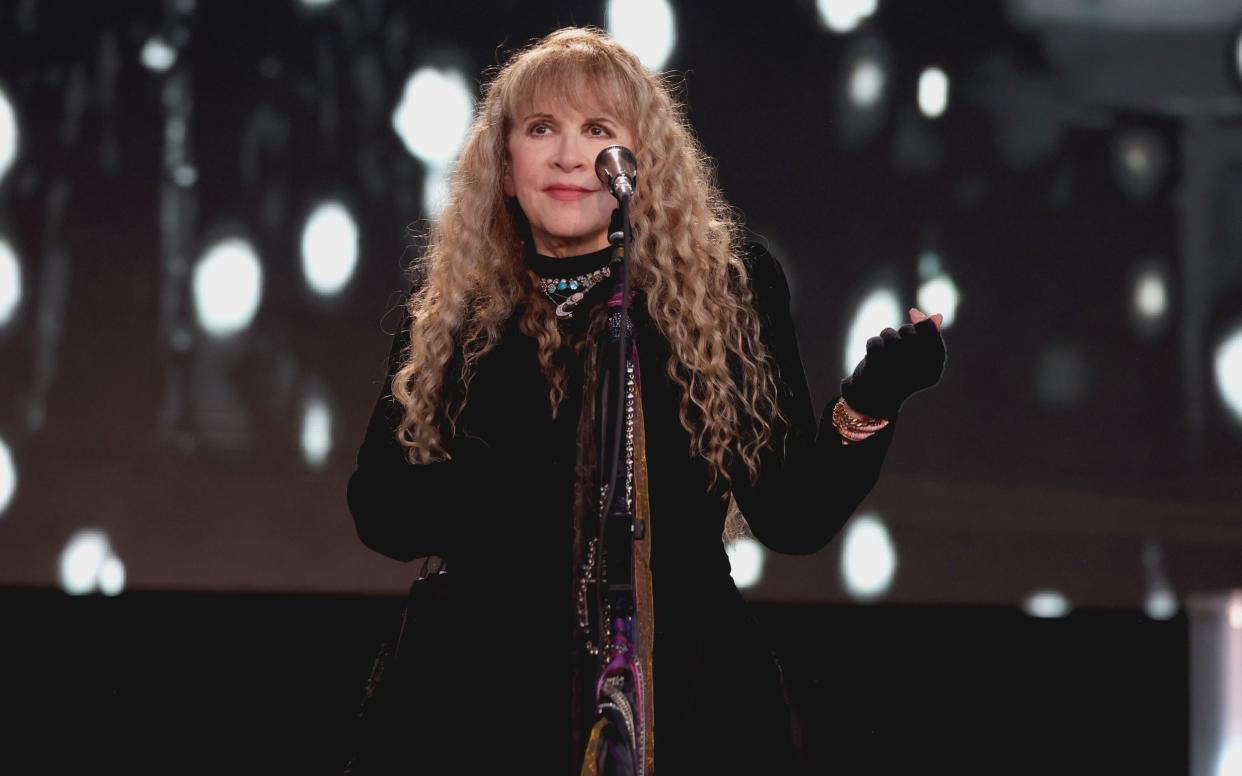Stevie Nicks: A tender, magnetic ode to Fleetwood Mac and the late Christine McVie

Stevie Nicks was guest of honour at the last of Taylor Swift’s three recent Dublin shows and received an equally warm welcome as she began her new solo tour with a thunderously enjoyable and, at times, deeply emotional concert.
Nicks is famed for her ethereal singing voice – but perhaps her most notable feature as a performer is her effortless bohemian cool. It was that quality, as much as anything else, that changed the fortunes of Fleetwood Mac when she and then boyfriend, Lindsey Buckingham, joined in 1974. Previously a fuddy-duddy blues band, with Nicks in the frame they were transformed into a soft-rock hit machine – an enterprise fuelled, to a significant degree, by their new vocalist’s celestial charisma.
Now 76, she remains magnetic and, across a two-hour set, lived up to the rock star status that prompted Swift to praise her as “one of the reasons why I or any female artist gets to do what we get to do now”.
Nicks has been downbeat about Fleetwood Mac’s future following the death of songwriter and vocalist Christine McVie in 2022. “Without Christine, no can do,” she said in June. “There is no chance of putting Fleetwood Mac back together in any way”.
Nicks nonetheless acknowledged their legacy – and the pain she felt over the passing of McVie. Opening with her stormy solo song Outside the Rain, she segued into Dreams – the 1977 Mac hit that crystallised the idea of Nicks as the eternal hippy, an apparition in lace, chiffon and trendy fringes.
She had several readymade anecdotes about her adventures in rock’ n roll. They occasionally meandered. For instance, introducing a cover of Buffalo Springfield’s For What It’s Worth, she embarked on a story about the writing of the track that potentially went on longer than it took Stephen Stills to compose it in the first place.
In Fleetwood Mac, there was a tendency to treat Nicks as a special effect – a cosmic thunderclap to be added to Buckingham’s erudite noodling. However, Nicks – a thorny rose amid the Mac’s muso wallflowers – had a star quality that none of her bandmates could match and, leading her own band, brought a heaviness that contrasted with Fleetwood Mac’s radio-friendly slickness.
Swaying in one of her signature capes, she howled through the epic title number from her 1981 solo LP Bella Donna –following it with a seismic Gold Dust Woman, to which her Brian May lookalike guitarist Waddy Wachtel (who in a previous life co-wrote Werewolves of London with Warren Zevon) added molten licks. One of the evening’s definitive moments came with her biggest stand-alone success, Edge of Seventeen, a rococo barnstormer that fused Led Zeppelin and Kate Bush and foreshadowed boho powerhouses such as Florence and the Machine and Bat for Lashes.
Still, for all the bite of her solo material, Nicks’s life and times with Fleetwood Mac was the theme threaded through the night. She referenced this once again by beginning the encore with Celtic prog-pop of Rhiannon, followed by a tender version of Landslide and a moving video montage of her and McVie down the decades.
“It’s been hard to have lost Christine,” she said, explaining that going on the road had been her way of coping with grief. “I don’t think I’ll ever get over it. I don’t really want to get over it. I have been running to the stage ever since Christine died – nothing else works.”
She kept her tears in check. But many in the audience were shedding them on her behalf at the end of a concert that served as a celebration of Nicks’s solo career and as a lament for McVie and the passing into history of Fleetwood Mac.
Touring until July 12

 Yahoo News
Yahoo News 
